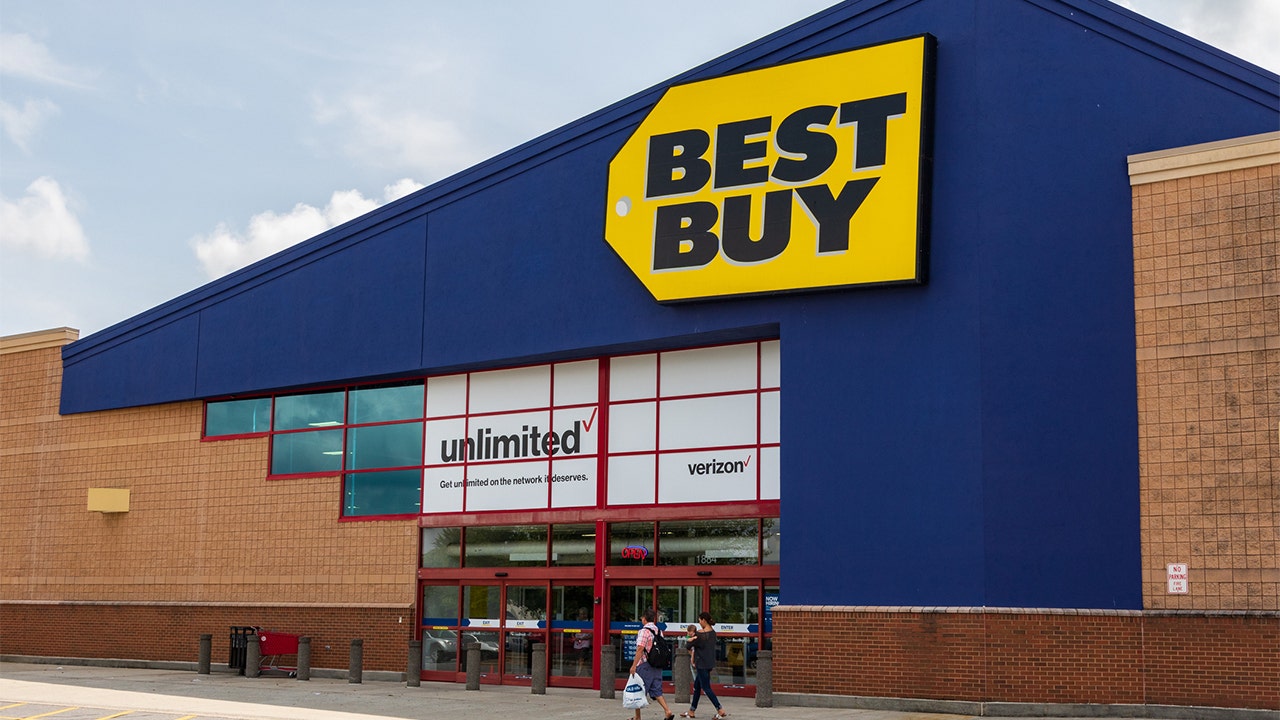Best Buy Billionaire Founder “Feels Really Good During Holiday Season” Despite Rising Inflation
Best Buy founder Richard Schulze says “serious or serious shortages†of products at the retailer are not expected due to supply chain disruptions.
Best Buy founder Richard Schulze said Wednesday he “is feeling really good about the holiday season” despite rising inflation.
Schulze acknowledged there would be “one-off blackouts” but told “Cavuto: Coast to Coast” he remained optimistic about the holiday shopping season, noting that he believed customers would stay “in. good health, strong and tolerant “next year.
He also said that Best Buy does not “expect serious or serious shortages” of products due to supply chain disruptions, which has made it more difficult for consumers to find certain items in stores at. across the country.
In October, consumers saw more than 2 billion out-of-stock messages online, according to Adobe, who noted that electronics currently have the highest out-of-stock levels, followed by jewelry, clothing, home and garden, and pet products.
Schulze told host Neil Cavuto that Best Buy has positioned itself to make sure products are available on store shelves by planning ahead and “recognizing that we have to get ahead.”
| Teleprinter | Security | Last | Switch | Switch % |
|---|---|---|---|---|
| BBY | BEST PURCHASE CO., INC. | 132.86 | -2.07 | -1.53% |
He noted that he had been in contact with senior management who “clearly care about our ability to be in stock during these peak seasons.”
Schulze acknowledged, however, that a few high-demand items, including Apple products, games, and home appliances, could be a bit difficult to find given the current economic climate.
Regarding Best Buy, Schulze said based on everything he’s heard, that items will mostly be in stock and prices will be “as they always have been” even in an inflationary environment.
“Best Buy is a value-driven business and our feeling here is that inflation is not something that we think will affect our products for our customers,†he told Cavuto.
INFLATION WILL LIKELY BE WORSE BEFORE IT STARTS TO IMPROVE, GOLDMAN WARNS
Last week, it was revealed that consumer prices in the United States were accelerating at the fastest annual rate in more than 30 years as supply chain bottlenecks and material shortages persisted and gasoline prices skyrocketed.
The consumer price index climbed 6.2% year over year in October, the Ministry of Labor said. The increase marked the largest annual gain since November 1990. Prices were up 0.9% month over month.
Wedbush Apparel and Footwear Research Analyst Tom Nikic and Prosper Trading Academy CEO Scott Bauer discuss positive retail and market numbers.
Analysts polled by Refinitiv expected prices to rise 0.6% in October and 5.8% annually.
The price of appliances climbed 6.6% in October compared with the same period last year, according to the Ministry of Labor, and the price of information technology products rose 3.1% year-on-year, computers, peripherals and smart home assistants were up 8.4% from October 2020. Televisions have grown significantly. 10.4% in October compared to the same period last year, according to the Ministry of Labor.
Schulze argued that despite inflationary pressures, he sees “little or no reluctance on the part of the consumer to buy the products” he wants and needs.
“I think consumers are always looking for the next flagship and / or the update, the upgrade, whether it’s TVs, computers, appliances,” he said. he added.
Schulze went on to point out that consumers for the most part have always aspired to own the latest technologies and models, noting that “we are not seeing a slowdown”.
“Our stores are busy. Our online sales are busy,†Schulze continued. “I have to say that we are feeling really good for the holiday season ahead.”
Schulze provided the information a day after it was revealed that consumer spending accelerated in October as shoppers kicked off the holiday shopping season earlier than usual due to bottlenecks in the supply chain.
GET FOX BUSINESS ON THE GO BY CLICKING HERE
Retail sales, a measure of spending in restaurants, stores and online, rose 1.7% last month, according to the Commerce Department. Analysts polled by Refinitiv had expected a 1.4% increase. The reading was 16.3% above levels of a year ago.
The country’s largest retail group predicted last month that holiday sales could ‘break previous records’ even as the economy faces a series of headwinds, including supply chain disruptions , inflationary pressures and widespread labor shortages.
Richard Schulze acknowledges that there will be “one-off blackouts”, but remains optimistic about the holiday shopping season and notes that customers will remain “healthy, strong and tolerant” until next year.
Last month, the National Retail Federation (NRF) estimated spending could increase by up to 10.5% from 2020 during the holiday shopping season, with total sales reaching between $ 843.4 billion and $ 859 billion. dollars. By comparison, sales rose 8.2% to $ 777.3 billion last year.
On Tuesday, it was also revealed that U.S. consumer confidence plunged to its lowest level in 10 years in November, reflecting increased concerns among Americans about higher-than-expected inflation and rising prices for consumer staples.
The University of Michigan consumer confidence index fell to 66.8 in November, down sharply from the October reading of 71.7 and well below economists’ forecast for a reading of 72 , 4.
The survey showed that one in four consumers have reduced their standard of living due to rising prices, and more than half of families expect their real income to decline in the coming year after adjusting for inflation.
CLICK HERE TO LEARN MORE ABOUT FOX BUSINESS
Megen Henney, Daniella Genovese and Jonathan Garber of FOX Business contributed to this report.


Comments are closed.